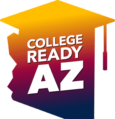High school pathways
Enrolling in college directly after completing high school is a common pathway that many students take.
You might be thinking, “I have no idea what I want to major in or what kind of career I’m going to want.” That’s OK and extremely common. One of the biggest perks of attending college is being introduced to new ideas, different people and interesting subjects that you may not have had the chance to learn about. Think of college as the springboard to a fulfilling life.
Why this might be the pathway for you
Continued learning
The material you learn in high school will be fresh and foundational to what you learn in college. By continuing to learn, you don’t risk a gap in retaining the basics.
Personal growth
You can explore new ideas and interests that you wouldn’t have otherwise learned about. You’ll interact with people from different cultures and backgrounds and experience opportunities that can help guide the rest of your life.
Community building
You will enter college with students who are going through the same experience as you, making it easier to navigate challenges together and develop lifelong friendships.
Financial aid
Some financial aid is only available to students immediately enrolling in college the fall semester after their high school graduation. Always be sure to check the eligibility requirements for any aid that interests you.
Career preparation
Many employers require applicants to have a degree before being considered for hire. Not only that, but you’ll form invaluable connections with faculty and alumni that can help you enter your chosen career field.
Long-term benefits
Studies show that many students who delay going to college immediately after high school never end up attending. By taking a job right after high school, you may find yourself putting college off, and that could hurt you in the long run.
First steps for students
Whether you’re currently in high school or approaching your freshman year, college is an option everyone should consider. It’s never too early to start exploring what life after high school might look like and how you can design a future that makes you happy.
What important dates should I note?
As you prepare to apply for college, take note of dates and deadlines like when applications open for each school, when scholarships are due, when the FAFSA is available and what the priority filing deadlines are for each school.
How can I match my interests to a college major?
One of the fastest and easiest ways to discover majors that might interest you is to take the me3 quiz. By clicking through photos you'll narrow down interest areas that can be matched to a major.
How can I make the most of high school?
High school is the perfect time to earn your best GPA, get involved in extracurricular activities like clubs, volunteering and sports, and visit your counselor frequently to ensure you are enrolled in the right classes and taking advantage of opportunities for incoming college students. Hear more advice from current college students on what they did to prepare.
You should join clubs, volunteer, work or take classes to help you figure out what you're good at and how you can make that into a career.
Lourdes Pereira
First steps for parents and guardians
Understanding your financial options for college is a huge first step toward helping your student succeed. Don’t panic if you haven’t been able to save enough to cover costs. There is financial aid available to help every family; you just need to apply.
What is a 529 College Savings Plan?
529 college savings plans allow your investment to grow tax-free and can be withdrawn tax-free for educational expenses such as tuition, room and board, and required textbooks. Each state offers a plan. Check out Arizona's AZ529.
529 prepaid plans allow you to prepay part or all of in-state public tuition costs, locking in the tuition rate at the time of your payment. This plan doesn't cover housing or meals.
How do we apply for financial aid?
There are many different types of aid and ways to pay for college. Submit the Free Application for Federal Student Aid (FAFSA) each year you wish to be considered for aid in the form of grants, loans or federal work-study. Some scholarships may also require you to submit a FAFSA, so it's a good idea regardless of if you think your family will qualify for assistance or not.
Who can apply for financial aid?
To apply for federal financial aid programs in the U.S. through the FAFSA, most applicants need to be U.S. citizens, eligible non-citizens or have Deferred Action for Childhood Arrivals (DACA) status.
For those who are unable to complete the FAFSA, the CSS Profile is an online application that some colleges use to award nonfederal institutional aid.
